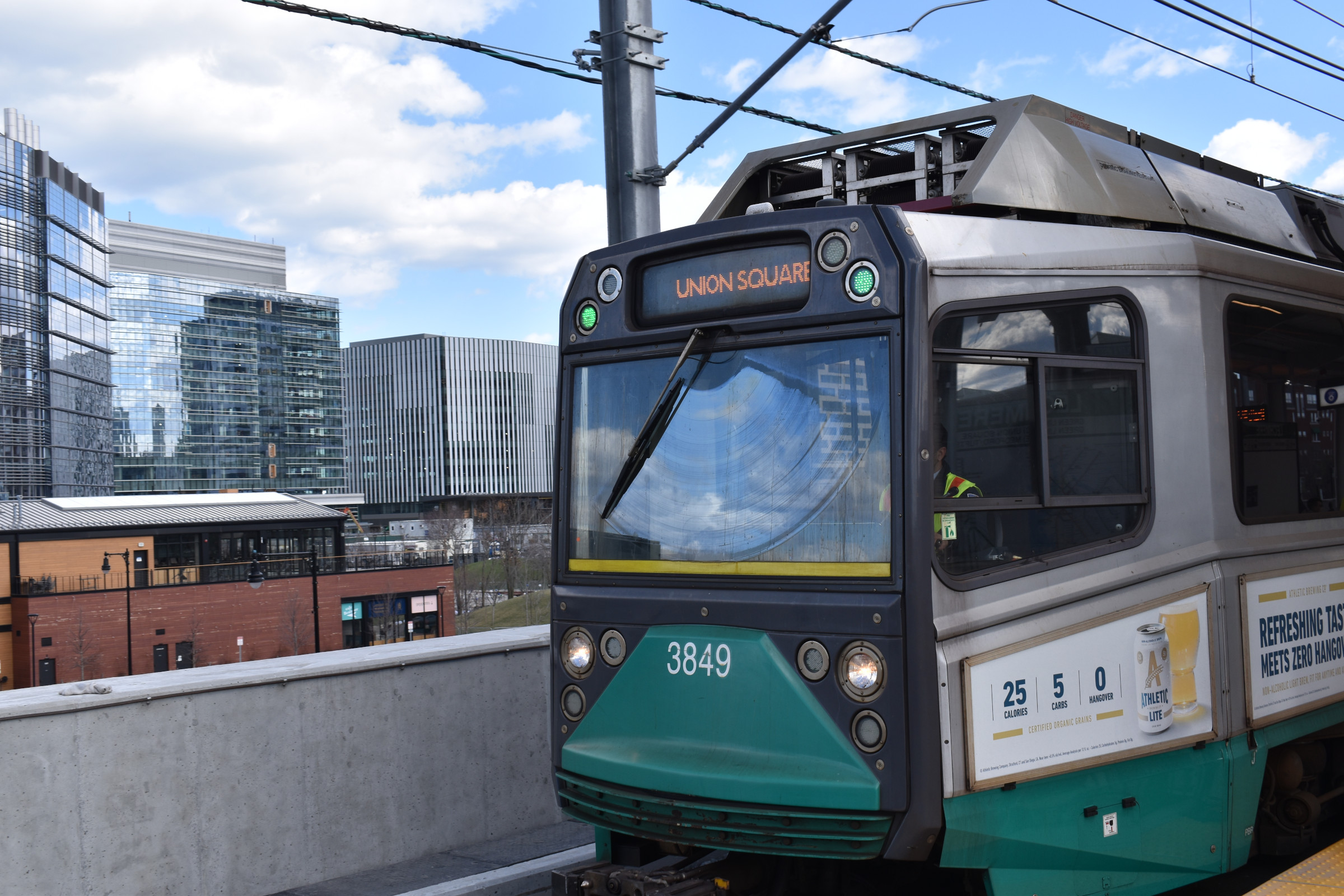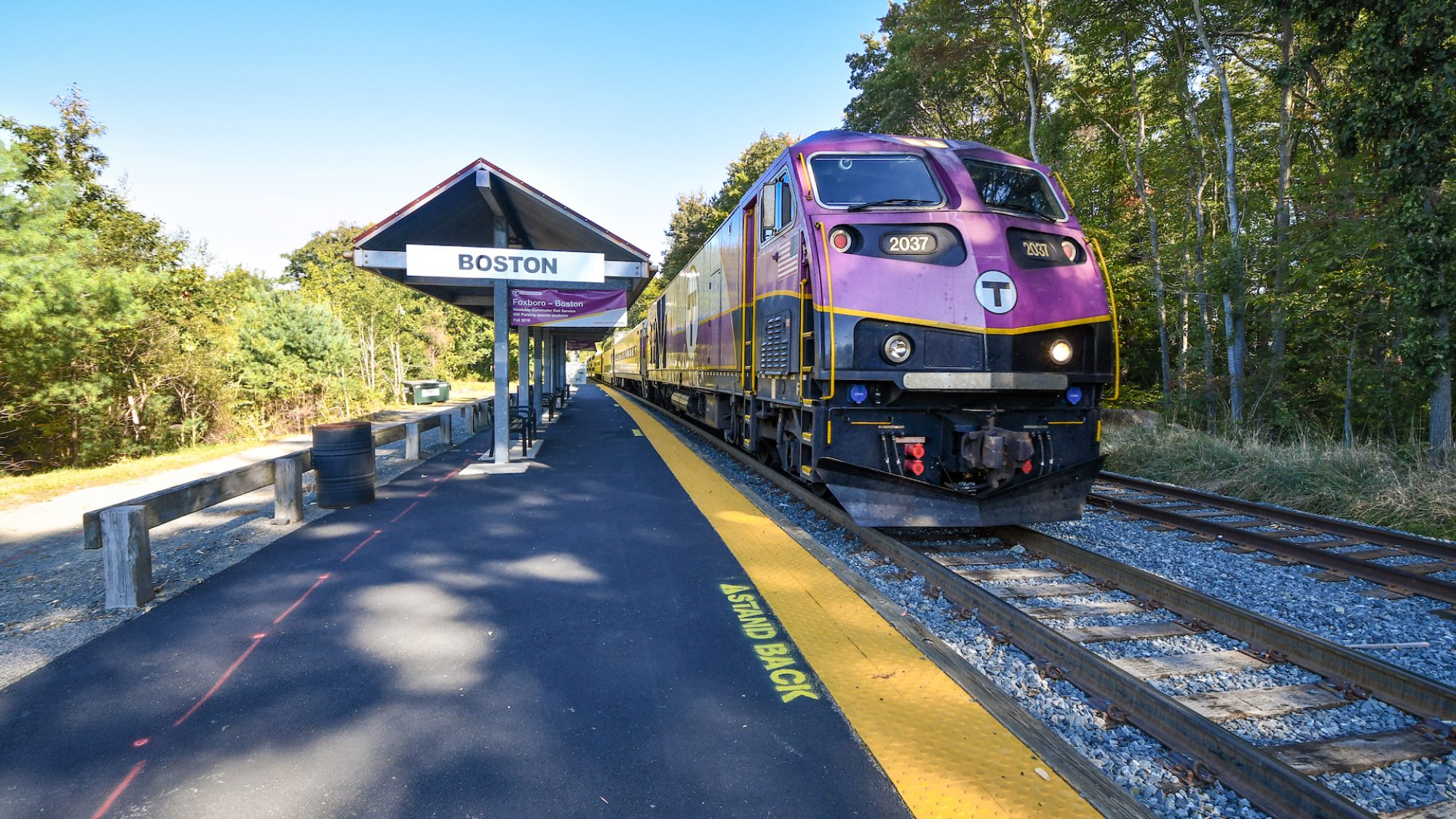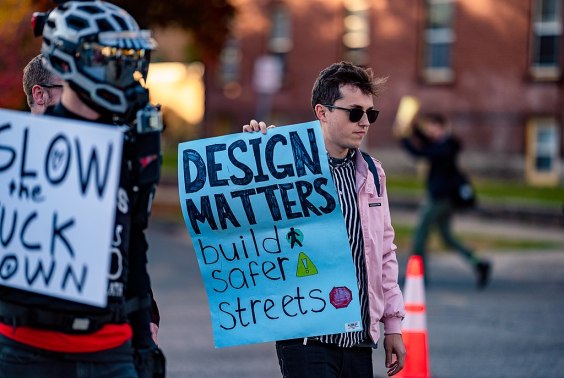At today's monthly MBTA board of directors meeting, T officials announced that the Medford branch of the new Green Line Extension project would finally open next month.
"I am pleased to announce that the Green Line Extension Medford branch will open at the start of service on December 12. We are really pleased to be able to share this news," said MBTA General Manager Steven Poftak. "Our original hope was to be opening towards the end of November. We had some additional work we wanted to get done, and we also wanted to be sure that we were doing everything we needed to do – not only on the Medford branch but across the system – to do it safely and properly."
The MBTA had opened the shorter Union Square branch of the Green Line extension project with a large grand opening celebration at the new Lechmere station in March.
The longer Medford branch will open five more stations between East Somerville and the Tufts University campus on the Somerville-Medford border.
Poftak, who was one of the dozens of riders who showed up in Union Square at 4:30 a.m. on Monday, March 21 to ride the first Green Line train from Union Square, said that grand opening celebrations for the Medford branch were still being planned.
"I know there's a universe of enthusiasts for this type of thing, so I look forward to seeing you all at approximately 4:45 a.m. for the grand opening of service."
Board approves new bus network map
After hearing nearly an hour's worth of public comment related to the plan, the board of directors also unanimously voted to endorse the T's proposed new bus network, and gave T staff the go-ahead to begin implementing the new bus network in phases beginning in 2023.
Still, the T's ongoing shortage of bus drivers will prevent any major changes to the bus network in the short term, and Doug Johnson, a transportation planner at MassDOT, said that changes for 2023 would likely focus on capital improvements, like new bus shelters, dedicated bus lanes, and bus garages.
Board member Thomas "Scott" Darling asked how many new drivers the T would need to recruit to meet the plan's 5-year goal for increasing bus service significantly over present-day service levels.
Johnson said that "we anticipate that we will need an addition of 440 drivers in order to implement that 25 percent increase in service that we anticipate having in the 5th year."
But Johnson also added that the MBTA is currently short-staffed, and trying to hire about 300 drivers for existing vacancies, without any addition in service. That driver shortage has, in fact, forced the T to reduce bus service over the past year.
"So in 5 years we're going to need about 700 drivers?" asked Darling.
"Correct," said Johnson.
A number of public commenters asked the board to slow down and hold additional public hearings before endorsing the plan, but T staff and board members generally supported moving forward to endorse the plan, with the understanding that additional changes could be introduced over the course of the 5-year implementation period.
MassDOT Secretary Jamey Tesler reminded his colleagues that "there will be ample time in the future before we implement this. This is a staged, very methodical process... we are expecting this to take time, and with that time, there will be time also for some of the follow-up that was requested."
The resolution to endorse the new bus network passed unanimously.
New, reduced penalties for fare evasion
The board also gave its stamp of approval for new, less draconian penalties for fare evasion.
A new state law that passed in 2020 and took effect in January 2021 de-criminalized fare evasion on the T and eliminated the previous schedule of fines that had been established in state law (these ranged $100 for a first offense, up to $600 for the third offense).
The new law specifically stipulates that riders may not be arrested for evading fares on the T, and gave the T the authority to set its own fines in the range of $10 to $250.
The changes in the state law were made in response to findings that the MBTA's Transit Police overwhelmingly targeted people of color in their enforcement activities.
"We're not in the business, and don't want to be in the business, of arresting people for not paying their fare," MBTA Assistant General Manager for Policy Lynsey Heffernan told board members.
Under the new rules adopted by the board on Thursday, riders would get a written warning for their first offense, s $50 fine for the first, second, or third subsequent offense, and a $100 fine for additional offenses.
The T's Transit Police will enforce the new regulations for the short term.
In the longer term, after the T adopts its long-delayed new fare payment system, Heffernan said that the agency could consider using civilian fare inspectors in lieu of police to issue the civil citations.






